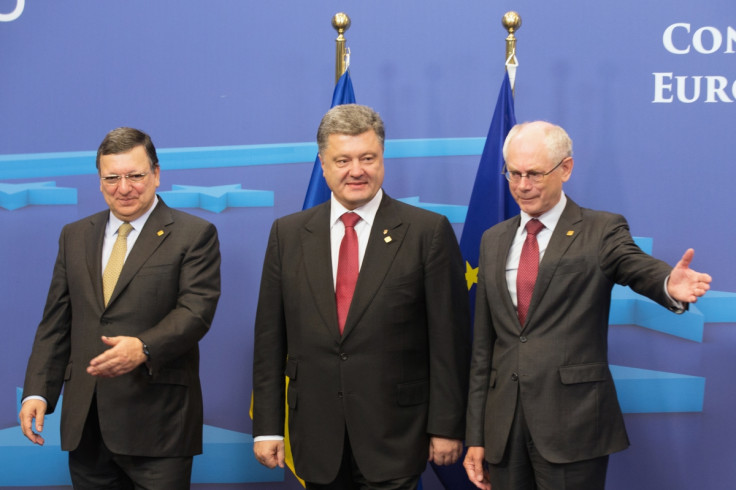What Can Georgia, Moldova and Ukraine Gain from Accord with EU?

Georgia, Moldova and Ukraine have entered into trade agreements with the European Union, in a move that raises more questions than it answers.
The first issue is the timing: the announcement was made on the day that a ceasefire in eastern Ukraine was set to expire. The trade agreement has been in the pipeline for some time, but still bears the hallmarks of a political ploy, in the same vein as Russia's decision to inaugurate the Eurasian Economic Union with Belarus and Kazakhstan in late May.
Russia wants to recast itself in a sepia-tinged vision of old: the strength in unity of the USSR, a memory that still brings a glint to the eye of many Russophile Kazakhs and Belarusians.
Europe casts itself as the "other", the light of freedom at the end of the tunnel of subjection, where all mod cons come as standard.
It suits the Ukrainian President Petro Poroshenko to build bridges with Europe – and fast, as Russia's economic isolation of Ukraine continues and gas shortages begin to bite.
Georgia
Little is known of the motivation of the other two parties involved, Georgia and Moldova.
In the case of Georgia, the courting by the EU is not a surprise. The country has long been belligerent towards Russia – the pair fought a short territorial war in 2008. It has been lobbying for inclusion in Nato for years and since 2011, has hosted an arsenal of US missiles.
Economically the country could certainly benefit from investment. It is reliant on its wine industry (the first wine is widely believed to have been produced in Georgia 8,000 years ago), but has enough arable land to be a net exporter of food and agricultural goods.
Yet, the country has a large trade deficit. One Russian banker who works extensively in Georgia told IBTimes UK that if the country could get its act together, Georgia wouldn't just be feeding itself, it would be feeding everyone else around it.
With investment from the EU, the country's agriculture sector could be upgraded and made more efficient. But Georgia has lofty financial ambitions too.
"They're keen on establishing Georgia as a centre for EU businesses to register, because of the tax regime," says Daniel Kaddick, an analyst at the Friedrich Naumann Foundation for Freedom, based in Sofia.
Moldova
Moldova's demographic make-up arguably makes it the most intriguing case of the three. The population of is ethnically split between Romanians, Russians and Ukrainians.
The leader of one of its autonomous regions, the Russian-speaking Gagauzia, warned last week that if the agreement were to go ahead, it could divide the country irreparably. Gagauzia held a referendum on joining Russia in February, with 99% of voters saying they wished to return to the "Motherland".
Yet Europe's smallest economy probably has the most to gain from fostering stronger ties with the EU. It has an average per capita GDP of just $2,000, with a quarter of the total GDP coming in remittances from expats in the EU and Russia.
"With the agreement, Moldova's GDP might grow at around 6.4% a year extra, and exports at 11% and these are significant factors. If they'd joined the Customs Union with Russia they would have seen a decline of GDP and exports," says Kaddick. "54% of the entire trade of Moldova is with the EU. If it had joined the Customs Union there would've been barriers to trade with the EU."
The country's low cost of labour will be attractive to manufacturers from other European countries, with Chisinau hoping that it will make the country more affluent.
Considering the poor economic state Moldova is in, it may be some time before it has the requisite structures in place for accession to the EU proper.
However, analysts have earmarked the two years post-2017 for special attention, when Romania will assume the EU presidency.
The pair have close ties and Romania has been integrating its energy sector with Moldova's in an effort to give it more independence from Russia.
Whispers in the corridors of Brussels suggest that when Romania assumes its period of presidency it will lobby for speedy accession for Moldova. If that is to happen, the pair have their work cut out for the next few years.
© Copyright IBTimes 2024. All rights reserved.







